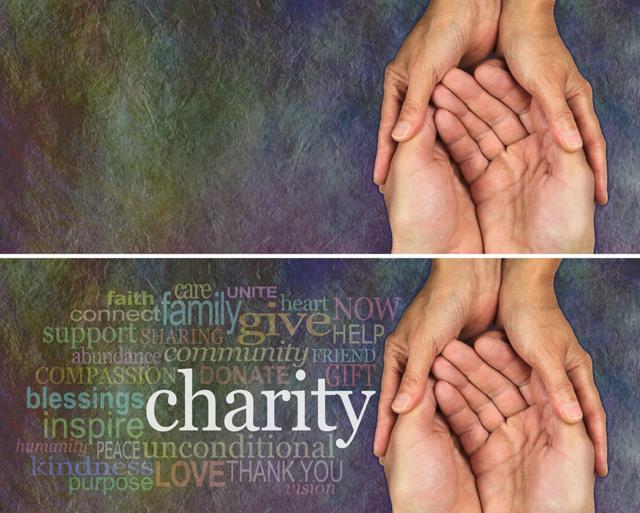Giving is good: Want to be happier, healthier? Donate money
Will donating money to a cause that is close to you make you healthier? A new study suggests just that. We speak to experts to understand more about the connection between our wallets and our hearts
A recent study conducted by The University of British Columbia, Canada, establishes a connection between the act of donating money and one’s physical health. The study tested the blood pressure of several volunteers, and found that the condition of those who were at risk, i.e., those who suffered from high blood pressure, improved remarkably when they spent money on others.

However, there was no change in the condition of those who were diagnosed with high blood pressure and were assigned to spend money on themselves.
Read: On Organ Donation Day, sharing, saving lives even in death
According to experts, to sustain the health benefits of financial generosity, it might be necessary to engage in novel acts (donating to a charity, for instance), while also prioritising the people who you are closest to.
How it works
“Being generous with your money, allows some scope for improvement in one’s prosocial behaviour. And an improvement in prosocial behaviour is one of the main factors that contributes to the physical health as well as longevity of a person,” says Dr Kersi Chavda, consultant in psychiatric medicine.
Since financial generosity helps reduce blood pressure, it also leads to better cardiovascular health. For the record, it is known that of the many established factors that put people at a higher risk of heart attack, blood pressure tops the list.

Experts say that an improvement in one’s prosocial behaviour also triggers the release of cortisol, a hormone involved in the regulation of blood sugar, fat, protein and carbohydrates. It is also called the ‘stress hormone’, as it modulates the changes that occur in the body due to tension.
And if experts are to be believed, the elite stand to benefit the most by financial generosity. “The upper class is at greater risk of stress-related diseases, complications caused by high cholesterol, and seclusion-induced depression. If they donate, there is an improvement in their levels of oxytocin. This has a host of positive effects on the body, and helps reduce stress and improve personal relationships,” says Dr Lekha Pathak, head — department of cardiology, Nanavati Super Speciality Hospital, Vile Parle (W).
Read: Mark Zuckerberg’s charity puts Chinese rich under pressure
She further elaborates, “Donating money and giving back to society, makes a tremendous difference to one’s body. One’s pulse rate improves, there is mental satisfaction and overall well-being. In short, a big heart keeps one healthy, in a way.”
Watch out for these tendencies
Meanwhile, experts warn that excessive generosity in any form may be a symptom of a manic phase or mental disorders, especially bipolar disorder.
Research also shows that in many individuals guilt can often lead to prosocial spending, which means that the person will be donating the money that is actually meant for paying his own bills under pressure or due to guilt.
There is also something called ‘helper’s high’. This is a by-product of financial generosity, and is caused by feel-good neurotransmitters such as oxytocin, which are released by the body when one is thanked or appreciated for assisting someone. This can be just as addictive as any other high.
Dos and don’ts
Although financial generosity can help you achieve better health, it is good to maintain a checklist to ensure you don’t go overboard. Apart from consulting your loved ones before making hefty donations, ask yourself these questions as they will help you enjoy the long-term benefits of financial generosity:
* Can I afford to make this donation?
You will be able to reap the benefits of financial generosity only when it does not overwhelm you or interfere with your day-to-day living costs.
* Will it actually benefit the cause mentioned?
The long-lasting benefits of financial generosity will be lost, if the donor realises or is apprised of the fact that the donated money was not truly beneficial for the cause.
* Would I be more effective if I did what I am doing for another organisation?
Financial generosity differs from altruism in which the only objective is to meet the needs of others. In the former, the donor is also seeking self-satisfaction by helping others. So, it is more effective if the benefited cause strikes a personal chord with the donor.
— With inputs from Dr Pratik Soni, cardiologist
Follow @htlifeandstyle for more.
Catch your daily dose of Fashion, Health, Festivals, Travel, Relationship, Recipe and all the other Latest Lifestyle News on Hindustan Times Website and APPs.




